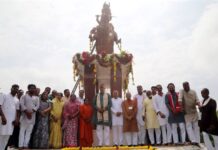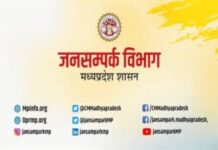It must be noted with paramount satisfaction and utmost happiness that more than 12 years after a tribunal in Assam declared a Muslim man to be a foreigner, the Supreme Court in a most learned, laudable, landmark, logical and latest judgment titled Md Rahim Ali @ Abdur Rahim vs State of Assam and Ors. in Civil Appeal No. of 2024 [@ Special Leave Petition (Civil) No. of 2024] [@ Diary No.20674 of 2017] and cited in Neutral Citation No.: 2024 INSC 511 that was pronounced as recently as on July 11, 2024 in the exercise of its civil appellate jurisdiction most commendably, most courageously and most convincingly restored his citizenship while ruling clearly that a “grave miscarriage of justice” had taken place in the case for which I just don’t have enough words to express my appreciation for this laudable judgment. It must be noted that a Bench of Apex Court comprising of Hon’ble Mr Justice Vikram Nath and Hon’ble Mr Justice Ahsanuddin Amanullah pointed out that the pleadings and record are silent pertaining to the basis on which the police in 2004 had initiated proceedings against Md Rahim Ali. Most crucially, the Bench clearly maintained stating succinctly that, “In the present case, though it is mentioned that from inquiry it was revealed that the appellant had migrated illegally to the State of Assam from Bangladesh after 25.03.1971 but nothing has come on record to indicate even an iota of evidence against him except for the bald allegation that he had illegally migrated to India post 25.03.1971. It is also not known as to who, if any person, had alleged that the appellant had migrated to India after 25.03.1971 from Village – Dorijahangirpur, Police Station – Torail, District – Mymansingh in Bangladesh.”
We must definitely pay full attention here that the Apex Court further also observed that it was incumbent upon the police to provide details as to how it had received the information that Ali had come to Assam from Bangladesh. It must be disclosed here that Ali had earlier challenged the decision of Foreigners Tribunal before the Gauhati High Court. Though the High Court had initially stayed the operation of tribunal’s order, his plea was most astonishingly dismissed in November 2015. This led to the instant appeal before the Supreme Court who granted him relief as we will discuss now in detail. To say the least, the Apex Court thus set aside very commendably the orders of the High Court and Foreigners Tribunal.
At the very outset, this recent, robust, remarkable and rational judgment authored by Hon’ble Mr Justice Ahsanuddin Amanullah for a Bench of the Apex Court comprising of Hon’ble Mr Justice Vikram Nath and himself sets the ball in motion by first and foremost putting forth in para 1 that, “I.A. No.58315 of 2017 [Condonation of Delay] is allowed, keeping in mind the peculiar facts and circumstances herein. I.A. No.58325 of 2017 [Exemption from filing Certified Copy of the Impugned Judgment], being formal in nature, is also allowed.”
As we see, the Bench then reveals in para 3 that, “The present appeal arises out of the Final Judgment and Order passed by a Division Bench of the Gauhati High Court at Guwahati (hereinafter referred to as the “High Court”) in Writ Petition (Civil) No.2668 of 2012 dated 23.11.2015 (hereinafter referred to as the “Impugned Judgment”) by which the Writ Petition filed by the appellant was dismissed and the order passed by the Foreigners Tribunal, Nalbari (hereinafter referred to as the “Tribunal”) dated 19.03.2012 passed in F.T. (Nal) Case No.(N)/1096/06 declaring the appellant to be a foreigner on the grounds that he failed to discharge his burden under Section 9 of the Foreigners Act, 1946 (hereinafter referred to as the “Act”) and failed to prove that he is not a foreigner, was affirmed.”
To put things in perspective, the Bench envisages in para 4 while elaborating on the facts of the case that, “The appellant claims that his parents’ names appeared in the Voter List of the year 1965 at Sl. Nos.71 & 72 showing the address as House No.17 in Village Dolur Pather, P.S. – Patacharkuchi, in the then district of Kamrup under 48 Bhabanipur Legislative Assembly Constituency in the State of Assam. It is further his claim that his parents’ names also appeared in the Voter List of the year 1970 at Sl. Nos.79 & 80 showing the same address. The appellant was born in the Village Dolur under Patacharkuchi Police Station in the District of Barpeta and his name was enrolled alongwith his family members in the voter list of 1985 which appeared in the additional amended voter list of 1985 at Sl. No.552 showing the same address. However, upon getting married in the year 1997, he left the joint family and shifted to his present place of residence i.e., village Kashimpur, P.O.- Kendu Kuchi, P.S. – Nalbari, in the district of Nalbari in the State of Assam. As a result of this, the appellant’s name was in the Voter List of the year 1997 at Sl. No.105 showing the address as House No.38 in Village Kashimpur, P.S. – Nalbari in the district of Nalbari under 61 No. Dharmapur LAC. In the year 2006, doubting his nationality, a case was registered in the Tribunal, Nalbari, being F.T. (Nal) Case No.(N)/1096/06, Police Reference No.948/04 and notice was served upon him.”
To be sure, the Bench then discloses in para 5 that, “The appellant’s daughter was issued a certificate by the Gaonbura of Kashimpur Village stating the residential status of the appellant/his daughter on 07.09.2010.”
Truth be told, the Bench observes in para 6 that, “The appellant, on receipt of notice from the Tribunal, appeared on 18.07.2011, praying for time to file Written Statement but the same could not be done as the appellant claimed to be suffering from serious health issues.”
While elaborating further, the Bench lays bare in para 7 that, “On 12.09.2011, the Gaonbura of Village Dolur Pathar issued certificate to the appellant regarding his residential status. By ex-parte order dated 19.03.2012, the Tribunal held that the appellant had failed to discharge his burden under Section 9 of the Act and failed to prove that he is not a foreigner. The appellant also obtained a medical certificate issued by the consultant doctor of Civil Hospital, Nalbari dated 24.04.2012 stating that he was suffering from Chronic Bronchitis Respiration disturbance from 25.11.2011 to 24.04.2012. Upon becoming aware of the order dated 19.03.2012 of the Tribunal from his counsel, the appellant filed Writ Petition (Civil) No.2668 of 2012 on 30.05.2012 before the High Court.”
Delving deeper, the Bench then further discloses in para 8 that, “In the said writ petition, the High Court by its interim order dated 06.06.2012 stayed the operation of the Tribunal’s order dated 19.03.2012 directing the authority not to deport the appellant during the pendency of the proceedings before itself. However, ultimately vide the order dated 23.11.2015, the High Court dismissed the Writ Petition, which is assailed herein.”
Most rationally, the Bench points out in para 40 that, “The initial infirmity of there being nothing on record as regards what grounds or material were actually available with the authorities to question the appellant’s status as to his nationality, is fatal to the projected case. The appellant had obtained documents/certificates from various officers with regard to his/his parents’ continuous presence in India much prior to the date 25.03.1971, which were produced before the Tribunal and have been noted by the Tribunal in its report dated 16.11.2017. Another relevant aspect is the prevalent situation on the ground where uninformed/illiterate persons or persons not being well-informed, in the absence of any requirement to obtain and hold an official document and without possessing property in their own names, would not have any official document issued by the government, State or Central. It is neither difficult nor inconceivable to fathom such scenario amongst the rural populace, including within Assam.”
It is worth noting that the Bench notes in para 41 that, “The evidence produced before the Tribunal by the appellant to indicate that his parents had been resident in India much prior to 01.01.1966 whereas his siblings and he himself much prior to 25.03.1971, has been disbelieved only on the ground of mismatch of actual English spelling of the names and discrepancy in dates. As far as the discrepancy(ies) in dates and spellings are concerned, we are of the view that the same are minor in nature. Variation in name spelling is not a foreign phenomenon in preparation of the Electoral Roll. Further, the Electoral Roll has no acceptance in the eyes of law insofar as proof of date of birth is concerned. A casual entry by the enumerators when noting and entering the name(s) and dates of birth(s) as also the address(es) of the person(s) while making preparatory surveys for the purposes of preparing the Electoral Rolls cannot visit the appellant with dire consequences. Moreover, in our country, sometimes a title is prefixed or suffixed to a name such that the same person may be known also by one or two aliases. The Tribunal seems to have been totally oblivious to all this.”
It also cannot be lost on us that the Bench points out sagaciously in para 44 that, “From an overall discussion on the Report/opinion of the Tribunal dated 16.11.2017, it is clear that there are minor discrepancy(ies) in the appellant’s documents, however their authenticity is not in doubt. In the considered opinion of this Court, the same would further buttress the appellant’s claim, that not being in the wrong, and being an ignorant person, he, truthfully and faithfully produced the official records as they were in his possession. We do not see any attempt by the appellant to get his official records prepared meticulously without any discrepancy. The conduct of an illegal migrant would not be so casual.”
Most significantly, the Bench propounds in para 54 holding that, “For and on the strength of the totality of reasons afore-indicated, this Court finds that the report/opinion of the Tribunal dated 16.11.2017, as sought by this Court through order dated 28.07.201713, is wholly unsustainable. Accordingly, the report/opinion dated 16.11.2017 is quashed. As the report/opinion dated 16.11.2017 has been examined threadbare by us, we have no hesitation in setting aside the Tribunal’s order dated 19.03.2012 as also the Impugned Judgment dated 23.11.2015 passed by the High Court. In any event, once this Court had passed the order dated 28.07.2017 (supra) calling for a fresh report/opinion, the sequitur logically would translate into the Tribunal’s order dated 19.03.2012 and the Impugned Judgment becoming susceptible to being quashed. It is so ordered.”
No less significant is what is then postulated in para 55 holding that, “This Court has found that the inferences drawn by the Tribunal do not falsify the appellant’s claim. In view of detailed analysis, the discrepancy(ies) in the material produced by the appellant can be termed minor. The same were not sufficient to lead the Tribunal to doubt and disbelieve the appellant and the version put forth by him. Thus, we are not inclined to remand the matter to the Tribunal for another round of consideration. Putting an authoritative quietus to the issue, the appellant is declared an Indian citizen and not a foreigner.”
Finally, the Bench then concludes by holding in para 58 that, “Let a copy of the judgment be circulated to the Tribunals constituted under the 1964 Order by the Registrar General of the High Court.”
Sanjeev Sirohi, Advocate,
s/o Col (Retd) BPS Sirohi,
A 82, Defence Enclave,
Sardhana Road, Kankerkhera,
Meerut – 250001, Uttar Pradesh.
Disclaimer
The information contained in this website is for general information purposes only. The information is provided by TodayIndia.news and while we endeavour to keep the information up to date and correct, we make no representations or warranties of any kind, express or implied, about the completeness, accuracy, reliability, suitability or availability with respect to the website or the information, products, services, or related graphics contained on the website for any purpose. Any reliance you place on such information is therefore strictly at your own risk.
In no event will we be liable for any loss or damage including without limitation, indirect or consequential loss or damage, or any loss or damage whatsoever arising from loss of data or profits arising out of, or in connection with, the use of this website.
Through this website you are able to link to other websites which are not under the control of TodayIndia.news We have no control over the nature, content and availability of those sites. The inclusion of any links does not necessarily imply a recommendation or endorse the views expressed within them.
Every effort is made to keep the website up and running smoothly. However, TodayIndia.news takes no responsibility for, and will not be liable for, the website being temporarily unavailable due to technical issues beyond our control.
For any legal details or query please visit original source link given with news or click on Go to Source.
Our translation service aims to offer the most accurate translation possible and we rarely experience any issues with news post. However, as the translation is carried out by third part tool there is a possibility for error to cause the occasional inaccuracy. We therefore require you to accept this disclaimer before confirming any translation news with us.
If you are not willing to accept this disclaimer then we recommend reading news post in its original language.













